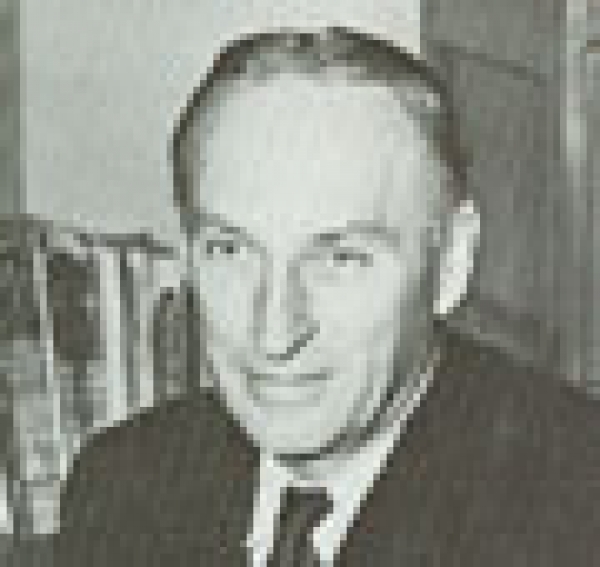Harry “Dean” Carlson’s career was one of leadership marked by quietness and dignity rather than by flamboyancy and controversy. Born in New York in 1896, Carlson received his early education in Jamestown, New York and Cleveland, Ohio; and, upon graduation from high school, he entered Ursinus College playing football and baseball as a freshman. He transferred to Springfield College, where he played baseball, and then interrupted his college career for military service with the Marine Corps in World War I.
Carlson graduated from Springfield College, and coached football and basketball at Milford Prep School in Connecticut for three years. In 1924, he received his Master’s degree from Clark University. From there, Carlson went to Hamline University in St. Paul, Minnesota, as assistant football coach and head baseball coach. After only one year, Carlson was appointed head of athletics.
That brought him a bid from the University of Colorado. In the fall of 1926, Carlson went to CU as Director of Physical Education. His enthusiasm quickly caught the eye of CU’s Board of Regents, and he acquired a field for intramural sports in a way that is still a legend. He collected student volunteers, borrowed wheelbarrows, and had the volunteers clear rocks from an empty field. Then he went to the administration and pointed out that the “playing field” was too dusty, so they gave him money for grass seed, which the students planted. In 1928, the Regents asked Carlson to take the combined job of Director of Athletics and Physical Education, a position he held for thirty-seven of his thirty-eight years at CU.
Carlson was also baseball coach from 1928-45, and named Dean of Men in 1939. His baseball teams won eleven conference titles. When Carlson retired from CU in 1965, the entire year was designated “Dean Harry Carlson Retirement Year.” It was the first time in CU history that an entire school year had been dedicated to one man—because in an age when “honesty” and “integrity” too often were just words, Harry Carlson helped make them a way of life for thousands of young men.
One of Carlson’s most satisfying achievements was the admission of CU into what is now the Big Eight Conference.
After his retirement in 1965, Carlson served a six-year term on the CU Board of Regents, and remained active in community and organizational work. He was honored with membership into Helms NCAA Athletic Directors Hall of Fame in 1972.
Carlson has been awarded an honorary Ph.D. from CU and, in 1976, the men’s gym was named Carlson Gymnasium in his honor.

Carlson’s career was one of leadership marked by quietness and dignity rather than by flamboyancy and controversy.
